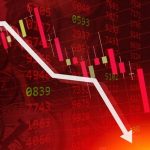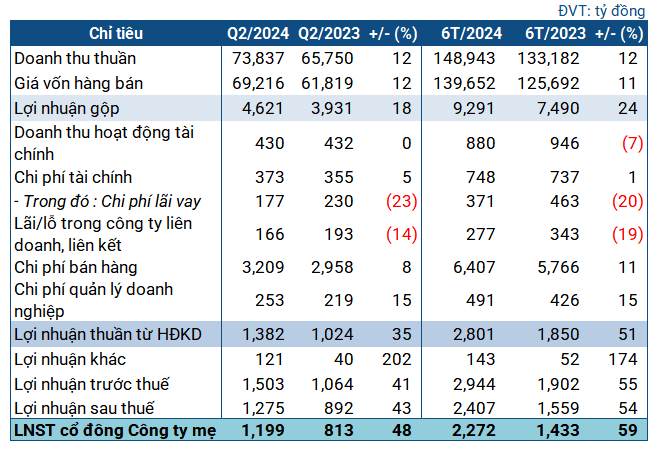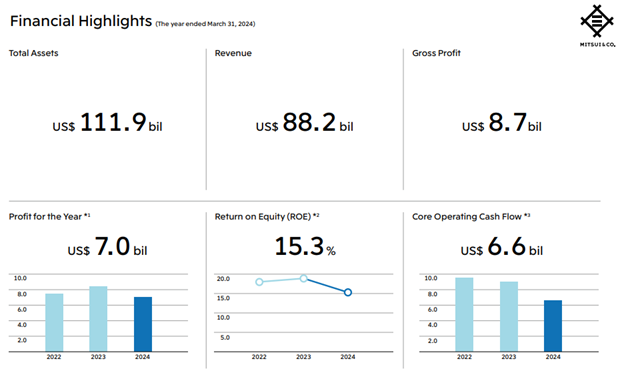
At a recent economic conference, Mr. Nguyen Ba Hung, the Lead Economist at the Asian Development Bank (ADB) in Vietnam, shared that global FDI flows have continued to decline in recent years. Notably, in 2023 alone, FDI outflows from China reached a staggering $150 billion.
Despite these global trends, Vietnam, a developing economy, has managed to maintain its appeal to foreign investors, as shared by the ADB expert. Statistics show that registered FDI into Vietnam for the first half of 2024 reached nearly $15.2 billion, an increase of 13.1% compared to the same period in 2023.
This indicates that Vietnam remains a top destination for manufacturers leaving China, thanks to its strategic position in the supply chain and its openness in both economic and political realms. Additionally, Vietnam has consistently maintained a substantial level of FDI disbursement, approximately $1.8 billion per month. The cumulative FDI implementation in Vietnam for the first six months of this year has been the highest in the last five years.
Furthermore, numerous prominent brands from various sectors have already entered or are planning to enter the Vietnamese market. TCL, for instance, chose Vietnam as their first overseas market over 25 years ago, and they continue to emphasize the country’s significance in their growth strategy.
TCL shared that their expansion strategy is focused on increasing exports, with the Asia-Pacific region, including Vietnam, being a key market. Their revenue during 2021-2023 demonstrated impressive growth, with a CAGR of 9.3%, and a remarkable 24% in the Asia-Pacific region. Net profit during the same period even achieved a CAGR of 56.9%.
With a long-term vision, TCL remains committed to their overseas expansion, aiming for a 3-year CAGR target of 52%, with the Asia-Pacific region, and Vietnam in particular, as a key market.
“TCL has laid a solid foundation in Vietnam by constructing a manufacturing plant in Binh Duong in 2019, spanning 72,900 m2 and involving a total investment of over $53.56 million. This facility is considered the most complete TV production base among the self-built factories in Southeast Asia,” TCL added.
Schneider Electric, a global leader in digital transformation for energy management and automation, also shared a similar sentiment at the Innovation Summit Vietnam 2024. The company emphasized its commitment to Vietnam by choosing it as a focal point for introducing their latest developments in automation, digitalization, and electrification.
“30 years mark an important transition to the next chapter for Schneider Electric in Vietnam. We aim to be pioneers in driving social progress and sustainable impact, shaping the future of homes, buildings, data centers, infrastructure, and industries in Vietnam,” shared Mr. Dong Mai Lam, Country President of Schneider Electric Vietnam & Cambodia.
Notably, Schneider Electric highlighted its role in developing electric vehicle charging infrastructure, a relatively new and vibrant sector in Vietnam. According to Schneider Electric, electric vehicle users prefer to charge their vehicles while they are parked, rather than parking to charge. With technological advancements, the range of electric vehicles is increasing, reducing the need for frequent charging stops. By encouraging charging at homes or office buildings, users can reduce costs by 20-25%, have more control over their driving schedules, and leverage renewable energy technologies for charging.
The world’s leading aircraft manufacturer, Boeing, has also recently established a permanent office in Hanoi.
During a meeting with Prime Minister Pham Minh Chinh, Mr. Brendan Nelson, Senior Vice President of Boeing and President of Boeing Global, emphasized Vietnam’s significance as a key partner due to its growing regional importance, visionary leadership, large population, rapid economic development, ability to attract foreign investment, and free trade agreements with major global markets.
Looking ahead, it is predicted that Southeast Asia will require 4,000 new aircraft over the next 30 years, with Vietnam leading this demand. Boeing expressed its aspiration to become a strategic supplier to Vietnam in meeting this need.
In another recent development,
one of the two leading pharmaceutical companies from India, SMS Pharmaceuticals, expressed their interest in investing in Vietnam. Mr. P.Ramesh Babu, Chairman and Managing Director of the group, requested 500 hectares of land to establish a pharmaceutical company.
From this park, the group plans to attract secondary investors, with commercial production expected to begin within 6-8 months.
Notably, the group is considering a shift from chemical to biological cancer treatment and has expressed their willingness to transfer cancer drug production technology to Vietnam, addressing a prevalent and feared disease in the country. In addition to drug manufacturing, the group also intends to establish a data center related to cancer radiation and chemotherapy in Vietnam.
Merck, the pharmaceutical giant behind the Molnupiravir COVID-19 treatment, has also chosen Vietnam as a priority market for its development and incentive policies.
Globally, Merck is a science and technology company with over 64,000 employees across 65 countries. They are renowned for bringing innovative solutions to the field of infertility and reproductive support worldwide. In Vietnam, Merck is focusing on the niche market of infertility treatments and has made a bold move by announcing that they will cover the costs of fertility treatment support for all their employees in the country.
The allure of the Vietnamese market is also evident in the luxury retail, jewelry, and cosmetics sectors, catering to the growing and sophisticated demands of its populace. Since the beginning of this year, renowned luxury brands such as Cartier, Oris, Hublot, Longines, and Vertu have been vying for a presence in the heart of District 1, introducing new collections, and enhancing their footprint in the country.
“Vietnam, in my opinion, is a very dynamic and creative market. With my ten years of experience at Oris and in Asia, I was truly surprised when I first came to this country. Vietnam has a vibrant pulse, evident in the way people do business, whether it’s selling coffee beans or creating unique and intelligent cafe models.
That’s just a small aspect, but it speaks volumes about the market’s potential. Many of my partners have also praised this country, acknowledging that the luxury goods market still holds advantages for Oris to develop here. That’s why we decided to enter Vietnam,” shared Mr. Michael Meier, Brand Director for the Asia-Pacific region.
Bank stocks plummet after overnight financial report release on January 31st.
The banking stock group, which has been leading the market in the first weeks of the year, experienced a collective downturn today.
















